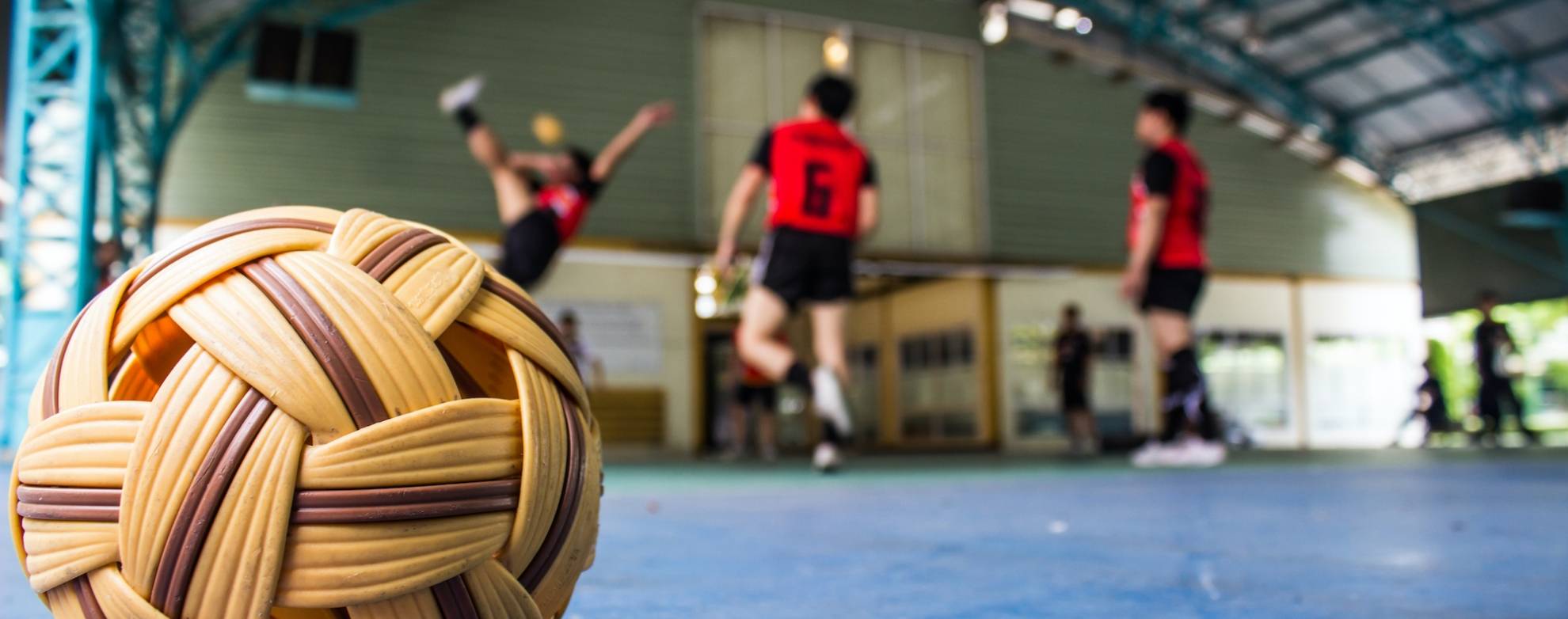7 obscure global sports that have astonished expats

It is increasingly accepted that physical wellbeing and fitness is a key factor in reducing stress. A healthy expat is therefore often a happy one – and expat happiness is central to the success of an international assignment or relocation project. In addition, sports – whether participating or simply watching – are a great opportunity for expats to immerse themselves in a new culture and to forge new relationships.
But when sporty expats arrive in their new country, they may be in for a surprise. Not only may their ‘usual’ sport not be offered (try finding a cricket club in Mexico or an outdoor ski slope in the Netherlands, for example), but they may also find the locals crazy for a sport they’ve never heard of. In the interest of preparing expats for some sporting surprises they will face in their travels, we compiled a list of 7 amazing and unexpected global sports.
Kabbadi – from Bangladesh and India
A hugely popular sport in Bangladesh and India, kabaddi is virtually unknown elsewhere in the world, so the superstar status of many top kabbadi athletes may come as a shock.
The sport involves seven players on each side and has a very basic aim. The teams take turns to send a ‘raider’ into the opponents’ half, where they have to ‘tag’ as many players as possible before returning successfully to their own half. Simple enough – until you hear the catch.
The tricky part is that players must not breathe while they are in their opponents’ half. Players therefore constantly say “kabbadi, kabbadi” to prove they are not taking a breath.
If you are travelling to India and want to try something new, kabbadi is a simple, dynamic and fascinatingly different sport. Because kabbadi courts can use any surface, the sport is widely played at all levels and there are many opportunities to get involved.

Sepak Takraw – from Malaysia and Thailand
Sepak Takraw is one of the most popular sports in Southeast Asia and is considered the national sport of Malaysia. To the uninitiated expat, it appears to be a hybrid of volleyball and football/soccer. However, a key difference is the ball, which is either made of light plastic or, more traditionally, rattan. Teams of three compete in an area similar in size to a volleyball court, with the same aim of ‘spiking’ the ball into their opponents’ court - but only using feet, shoulders or heads to control the ball.
The game is played at all levels and was standardized in 1960, when it was given a name that diplomatically combined the languages of the two countries who claimed to have originated the sport: it combines the Malay word sepak, meaning ‘kick’, and the Thai word takraw, meaning ‘woven ball’. While Southeast Asia is the birthplace of the sport, the International Sepaktakraw Federation claims there are now more than 25 active international teams across five continents.

Pesäpallo – from Finland
Also known as “Finnish baseball”, pesäpallo is Finland’s national sport. It was invented by Lauri Pihkala after WWI, both as entertainment and with the intention of strengthening the national identity of the newly created Finnish nation.
Pesäpallo mainly differs from baseball in the way the ball is pitched. Instead of being thrown directly at the batter, the ball is thrown into the air giving the batter a ‘free hit’ in any direction. However, the aim is not to hit the ball out of the park but to direct the ball tactically, enabling runners to run between bases.
The Finnish league, called the Superpesis, is well established with both men’s and women’s teams, and expats will find amateur clubs in most towns.
Buzkashi – from Afghanistan
Buzkashi is the national sport of Afghanistan and, to Western eyes, perhaps the most bizarre sport of all. Also played in neighbouring Kazakhstan and Kyrgystan, where it is known as kokpar and kokboru respectively, it is a traditional sport that was first played by nomadic Asian tribes in the 10th century.
Riders on horseback compete to win possession of a carcass (usually a calf) and place it in their opponents’ goal. The Afghan Olympic Federation published an official set of rules, stipulating that a player (known as a chapandaz) should not whip or deliberately unhorse an opponent for example, but it is nonetheless a chaotic and dangerous sport. While injuries are common, it remains a culturally significant and extremely popular sport.
In March 2021, Kabul hosted a national buzkashi championship, but the Taliban is expected to ban it, as they did in 1990. In the current political climate, few expats will find their way to Afghanistan to witness buzkashi first-hand, but this is a sport that is central to the national culture – and likely to outlast any political regime.

Caber tossing – from Scotland
As a key event in the Scottish Highland Games, caber tossing is a quintessentially Scottish sport. Practised by both men and women, the sport involves throwing a 5m-long wooden pole or ‘caber’. It takes its name from a Gaelic word for ‘beam’ and is thought to originate from the practice of throwing tree trunks over ditches or chasms to create temporary bridges.
The throw begins with the caber’s thinner end on the ground, leaning against the thrower’s shoulder. The thrower crouches, places hands below the end of the caber and lifts it into position to prepare for the ‘toss’.
While weight and strength are key qualities for participants, the distance thrown is unimportant. The objective is to ‘flip’ the caber by throwing it onto its end with enough force that it topples away from the thrower. Most tosses fall to one side or the other: the perfect result is one that falls in the "12 o'clock" position.
Due to its physical nature, expats may be more likely to watch caber tossing than take part, but it is a key part of Scottish sporting culture and a must-see for Scotland-bound expats.
Fierljeppen – from the Netherlands
The Friesland area of the Northern Netherlands may not have any mountains, but it does have a lot of waterways. The sport of Fierljeppen originated from the technique used by farmers to cross the many drainage canals that criss-crossed their land. In essence, it is a pole vault over water, where competitors leap onto a 10m pole (already positioned in the water) and aim to travel as far as possible – preferably to dry land on the other side.
Also known as Pultstockspringen in low-lying areas of Germany, the sport has spread to other parts of the world such as the US, where it is referred to as ditch-vaulting. Although it is considered a novelty sport, there are official world records – and competitions have been held in the Netherlands since 1767.

Eukonkanto (Wife Carrying) – from Finland
It’s those Finns again. With most of the winter spent in the dark, they are clearly keen to fill the summer months with furious – and often bizarre – activity. Eukonkanto, aka wife carrying, is a case in point.
It is essentially a race between two couples, where the man carries his wife (who must weigh at least 49kg) over a 253.5m track, which includes obstacles such as sand and water. Carrying techniques include the Fireman’s Carry (over the shoulder), a regular piggyback, or the ‘Estonian’, which involves the wife clinging onto to her husband’s back upside down.
Although there has been a Wife Carrying World Championship in Finland since 1992 and wife carrying is featured in the Guinness Book of Records, it is a sport that does not take itself too seriously. To prove the point, the official prize for the World Champion is to win his wife’s weight in beer.
What’s your game?
Of course, if you are familiar with these sports already, you may be surprised at their inclusion. But bear in mind that the rest of the world may not know them, and the chance to participate in them outside your region may therefore be limited.
For many expats, the chance to travel is a chance to try something new. While eukonkanto, buzkashi and pesäpallo may not be your thing, use them as inspiration to get out there, experience new activities and maybe even find a new sporting passion...



